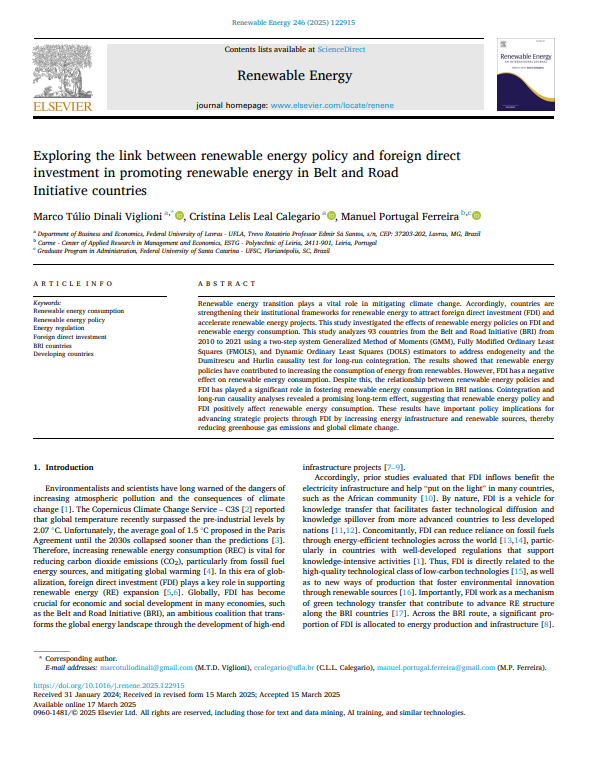
Author(s)
Marco Túlio Dinali Viglioni, Cristina Lelis Leal Calegario, Manuel Portugal Ferreira
Country(ies)
Publisher
Published Date
Access
DOI
Renewable energy transition plays a vital role in mitigating climate change. Accordingly, countries are strengthening their institutional frameworks for renewable energy to attract foreign direct investment (FDI) and accelerate renewable energy projects. This study investigated the effects of renewable energy policies on FDI and renewable energy consumption. This study analyzes 93 countries from the Belt and Road Initiative (BRI) from 2010 to 2021 using a two-step system Generalized Method of Moments (GMM), Fully Modified Ordinary Least Squares (FMOLS), and Dynamic Ordinary Least Squares (DOLS) estimators to address endogeneity and the Dumitrescu and Hurlin causality test for long-run cointegration. The results showed that renewable energy policies have contributed to increasing the consumption of energy from renewables. However, FDI has a negative effect on renewable energy consumption. Despite this, the relationship between renewable energy policies and FDI has played a significant role in fostering renewable energy consumption in BRI nations. Cointegration and long-run causality analyses revealed a promising long-term effect, suggesting that renewable energy policy and FDI positively affect renewable energy consumption. These results have regulatory and policy implications for advancing strategic projects through FDI to increase energy infrastructure and renewable sources and reduce greenhouse gas emissions and global climate change.